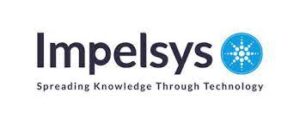Why Social Learning Matters In Digital Education
Social learning—learning that occurs through interaction, collaboration, and observation of others—is a powerful enhancer of knowledge retention, learner motivation, and real-world application. In the context of digital learning, this means embedding forums, chat capabilities, peer reviews, and collaborative tools into your eLearning platforms. When thoughtfully implemented, integrating social learning in custom eLearning development efforts can elevate the impact and make your offerings more compelling to institutions, learners, and stakeholders alike.
Social learning is not a new concept—it’s how humans have always learned. What’s changed is the technology that enables it at scale. Today’s Learning Management System (LMS) software can support a range of social learning elements that simulate the best parts of classroom interaction, while still offering the scalability, flexibility, and personalization of digital delivery.
For publishers, this means enhancing digital content with interactive layers that go beyond passive reading or viewing. For educational institutions, it opens the door to more active learner engagement, improved outcomes, and greater community building.
Integrating Social Learning In Custom eLearning Provides You A Competitive Edge
Here’s how integrating social learning into your eLearning solutions provides a competitive edge:
1. Boosts Learner Engagement And Retention
Traditional eLearning can sometimes feel isolating. By adding discussion forums, group activities, and social feeds, learners feel more connected to the content and each other. These peer interactions increase time on task and deepen conceptual understanding. Custom forums within LMS course creation allow learners to ask questions, share insights, and collaborate, mirroring the value of classroom discussions in a virtual space.
2. Enhances Feedback Loops Through Peer-To-Peer Learning
One of the most underestimated benefits of social learning is the ability for learners to give and receive feedback. Structured peer reviews, rating systems, and discussion moderation features embedded in your custom eLearning solutions can help learners reflect critically, improve their work, and learn from diverse perspectives. It also reduces the burden on instructors, allowing for more scalable content delivery.
3. Drives Collaboration And Real-World Skill Development
Workplaces are collaborative by nature—so should learning be. Incorporating team-based assignments, shared projects, and collaborative tools into your eLearning creation process helps learners develop essential soft skills like communication, leadership, and teamwork. These competencies are increasingly in demand by employers and institutions alike, making your solutions more relevant and future-ready.
4. Promotes A Sense Of Community And Belonging
When learners feel part of a community, they are more likely to stay engaged and complete courses. Social learning features, like learner profiles, progress sharing, and interactive cohorts, create a sense of belonging that improves satisfaction and completion rates. For institutions and publishers, this means better performance metrics and a stronger reputation in a competitive market.
5. Generates Actionable Insights For Instructors And Administrators
Social interactions generate data-rich insights that can inform Instructional Design and content improvement. By integrating analytics tools into your Learning and Development solutions, you can track which discussion topics spark engagement, identify knowledge gaps, and adjust course strategies in real time. These insights not only benefit learners but also help institutions make data-driven decisions.
6. Increases The Lifespan And Impact Of Learning Content
When learners actively contribute to content through discussions, shared resources, or content curation, your custom eLearning development becomes more dynamic and evergreen. Content is enriched by diverse perspectives and lived experiences, making it more relatable and engaging for future cohorts.
Strategic Considerations When Integrating Social Learning In Custom eLearning
To fully harness the power of social learning, decision-makers must consider strategic alignment with existing goals and technology ecosystems. Here are a few best practices to keep in mind:
- Customization is key
Generic solutions may not offer the depth of social learning features you need. Partnering with the right provider for custom eLearning solutions ensures flexibility, seamless integration, and scalability. - Design for accessibility and inclusivity
Social learning tools should be intuitive and usable for learners of all backgrounds and abilities. - Maintain a balance between structure and freedom
While learner-led interaction is powerful, guided discussions and moderated spaces ensure focus and quality. - Ensure privacy and compliance
Particularly in the education and publishing industries, maintaining data security and aligning with regulatory standards is critical when enabling social interaction online.
The Future Is Collaborative
As the publishing and education industries continue to shift toward digital-first strategies, embedding social learning into eLearning platforms isn’t just an enhancement, it’s a transformation. With the right approach to LMS course creation, Learning and Development solutions, and custom eLearning development, decision-makers can unlock the full potential of digital education.
Investing in social learning is not just about keeping pace with trends, it’s about positioning your organization at the forefront of learner-centric innovation. Whether you’re delivering professional development content, digital textbooks, or academic curricula, social learning will help you deliver more impact, more engagement, and more value.
Conclusion
Integrating social learning into your custom eLearning solutions empowers you to deliver richer, more connected, and more effective digital learning experiences. For publishers and educators navigating a competitive, evolving digital ecosystem, this approach offers not just a tactical improvement but a strategic advantage.

Impelsys
Impelsys is a Leading provider of Learner-Centric Digital Courseware Solutions and Comprehensive end-to-end Learning Management Platforms. We bring 20+ years of experience in developing interactive personalized & engaging custom E-learning courses.

